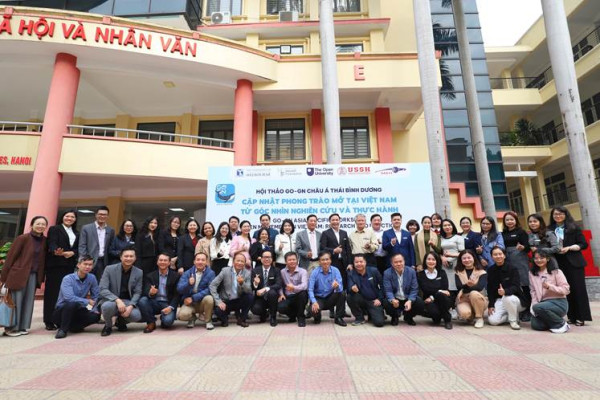Why is Information Management so important?

INFORMATION MANAGEMENT: WHO NEEDS IT?
It can be difficult to get buy in from agency staff not working directly in an IM related discipline, and it can be even harder to sell its benefits to senior executives.
However, when we position IM as a tool to solve business problems rather than just compliance activity, its benefits become a lot more tangible. It isn’t the intricate details of IM practice that are valued by most practitioners, it’s the business outcome that matters.
“Let’s face it, no one wants a corkscrew, they just want the cork out of the bottle. Information is an asset, and its effective management can have a direct and lasting impact on achieving business objectives. That’s the story that needs to be told.”
Increasingly, information that is managed by the Queensland Government is sought after for a diverse range of purposes – from integrated service delivery to improve the lives of Queenslanders, better policy and planning, improving the efficiency of government; and more and more for data analytics; these uses are further unlocking the value of our information holdings and opening up new areas of exploration and interest.
SO, WHY IS IM SO IMPORTANT?
IM is about ensuring that information is available to the right person, in the right format at the right time. This can be a complicated process. It involves a range of domains such as information governance, information asset management, information security, records management and information access and use management.
Clearly, IM is about managing information, but that isn’t the end of the story. We don’t manage information simply for the sake of it – all government information is managed for a purpose and that purpose is to make every bit of data and information count towards a business outcome.
To do this, IM brings together a range of resources including data, information, technology, information systems, business processes and, perhaps most importantly, PEOPLE. Let’s take a closer look at some of the people who stand to benefit from or are involved in good IM practice, and see how it helps them achieve their business objectives.
Agency Leadership/Executives
This group, quite rightly, is focused on the big picture. Unless there is some sort of service delivery failure that involves information, or a massive opportunity presents, IM will rarely make it onto their radar. While IM practitioners might see information as one of the key assets of the organisation, this group is far more likely to be focused other, more tangible assets such as human and financial resources or physical infrastructure. However, what this group is really focused on is achieving outcomes – and it’s in this area that the value of information and its effective management should be highlighted.
For Agency Leadership/Executives, the benefits of IM include:
- Achieving strategic outcomes
- Identifying opportunities
- Growth and success
- Effective and informed planning (e.g. service delivery or disaster management)
- Saving money/maximising value
- Managing risk
Business Owners/Managers
In a data driven world, business owners need good information to make good decisions. Time is also a factor for this group – having access to reliable and high quality information is one thing, but the timely sharing of information is another (see ‘When a child is missing’ report). Good IM practice ensures that the information assets of an agency are stored, classified, curated and organised – ready to support the business to achieve their outcomes.
For Business owners and managers, the benefits of IM include:
- Decision making support
- Achieving business outcomes
- Business planning and continuity
- Resource allocation
- Identifying opportunities
- Predicting trends
IM Practitioners
IM Practitioners benefit from (and, let’s face it, actually enjoy) good IM practice. But it’s also their responsibility to get everyone in their agency, from general staff to those in management and executive roles, appreciating it and involved in IM. The key is to identify a business problem and explain in direct terms how IM can contribute to solving that problem.
For IM practitioners, the benefits of IM include:
- Assisting business to achieve its outcomes
- Obtaining support/budget for initiatives
- Sharing information with other agencies
- Building capabilities
- Safeguarding vital information
- Compliance
- Managing the lifecycle of an organisation’s activities
Agency staff
IM is not limited to a single department or set of employees – all staff should be aware of what IM is and how it can potentially benefit them and the organisation. Most staff aren’t interested in the intricacies of the recordkeeping system or what constitutes an information asset register – they just want to do their job. However, in a world that is increasingly reliant on data and information, everyone has a role to play in the life-cycle of an agencies information and everyone can potentially reap the rewards. Ensuring staff are trained in their responsibilities and actively supported in managing their information is one way to ensure that they see the practical benefits of IM and incorporate good practice in their everyday activities. Threatening them with a breach is another 
For agency staff, the benefits of IM include:
- Supporting decision making
- Finding the information that you need
- Saving time and effort
- Meeting performance obligations
Government
Even more than Agency Leaders and Executives, elected government representatives are focused on the big picture. With policy priorities such as Digital1st, Open Data and Our Future State, it is clear that the focus is on using, sharing and leveraging data and information to ensure government services meet community expectations – now and into the future. Ensuring that our information assets are managed properly, not only underpins efficient government operations, but also allows the potential of the Queensland Governments vast information holdings to be realised.
For the Queensland Government, the benefits of IM include:
- Improving outcomes
- Meeting objectives
- Developing effective strategy and policy
- Identifying trends and opportunities
- Targeting services/programs
- Saving money/maximise value
- Planning for the future
Citizens
For those of us not in a public facing role, it can sometimes be hard to make the connection between what we do and how that impacts on the citizens of Queensland. However, as public servants, we all serve the public in once capacity or another, and we need to ensure that our data and information is ready to serve them too.
Good information management ensures that our information assets are visible and useable across service delivery verticals, which enables citizens to receive joined up services and derive the maximum value possible from them. Sharing information might even result in the identification of new service delivery options or inform citizen centric policy development.
For the Citizens of Queensland, the benefits of IM include:
- Improving service delivery
- Better value for tax dollar
- Safeguarding privacy
- Targeted/joined up services
- Less duplication
- Increasing trust in government
Researchers/Data analysts
We don’t know what we don’t know – researchers and data analysts help us find the answers. With timely access to quality data and information, they might even help us identify new questions and ways to solve existing problems. To do this, they need to know what information exists, where it’s located, who the custodian is and how to request access to it. Ensuring that government information is managed effectively provides the groundwork for the potential of our data and information to be realised – now and into the future.
For Researches and Data Analysts the benefits of IM include:
- Knowing what data and information is available and who to approach to get access to it
- Identifying opportunities
- Analysing trends
- Solving problems
- Producing well informed outcomes
- Contributing to the body of knowledge
Ý kiến bạn đọc
Những tin mới hơn
Những tin cũ hơn
-
 VNU-USSH: Tiên phong trong phát triển bài giảng điện tử MOOC
VNU-USSH: Tiên phong trong phát triển bài giảng điện tử MOOC
-
 Triển khai tổ chức bảo vệ đề án, luận văn theo quy trình mới: Tinh gọn, chuyên nghiệp, lấy người học làm trung tâm
Triển khai tổ chức bảo vệ đề án, luận văn theo quy trình mới: Tinh gọn, chuyên nghiệp, lấy người học làm trung tâm
-
 USSH tham chia sẻ chiến lược AI trong giáo dục tại Diễn đàn SEAMEO INNOTECH 2025
USSH tham chia sẻ chiến lược AI trong giáo dục tại Diễn đàn SEAMEO INNOTECH 2025
-
 Vai trò đồng hành của Công đoàn cùng chính quyền trong nâng cao năng lực cho đoàn viên: Nhìn từ mô hình Công đoàn bộ phận Khoa Thông tin – Thư viện
Vai trò đồng hành của Công đoàn cùng chính quyền trong nâng cao năng lực cho đoàn viên: Nhìn từ mô hình Công đoàn bộ phận Khoa Thông tin – Thư viện
-
 Hội thảo GO-GN Asia Pacific 2025: Cập nhật phong trào mở tại Việt Nam từ góc nhìn nghiên cứu và thực hành
Hội thảo GO-GN Asia Pacific 2025: Cập nhật phong trào mở tại Việt Nam từ góc nhìn nghiên cứu và thực hành
- Đang truy cập21
- Hôm nay6,738
- Tháng hiện tại63,525
- Tổng lượt truy cập6,330,781
